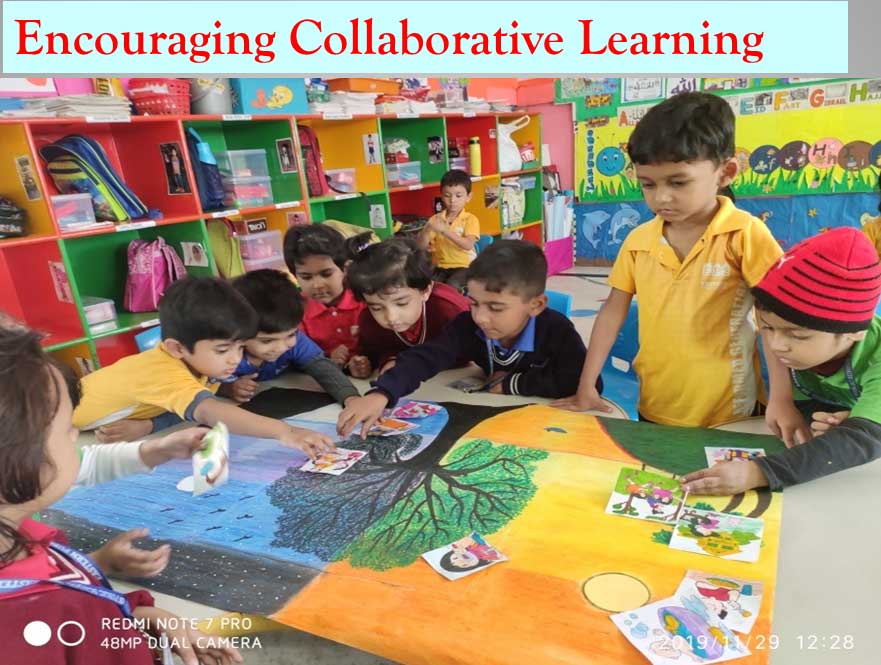The PYP Learner in Early Years [ 3 to 6 years old]
The PYP transdisciplinary framework offers young students authentic opportunities to focus on key developmental abilities.
• The learning community values the early years as a time in which play is the primary driver for inquiry.
• Play involves choice, promotes agency and provides opportunities to inquire into important concepts and personal interests.
• The following features are central to learning in the early years: play, relationships, learning spaces, symbolic exploration and expression
The PYP learner in the early years (3–6 years old)
Supporting children cognitively, socially, emotionally and physically requires that all members of the learning community value these early years in their own right, as a time in which play is the primary driver for inquiry. Through play, young children develop approaches to learning and connect with key domains oftheir development.
• Receptive and cognitive abilities (for example, listening, remembering, thinking, analysing, generating theories, the control of attention and working memory)
• Representational abilities (for example, using symbolic systems—such as oral and written language, drawing and mathematical symbols—to construct and represent meaning)
• Relational abilities (for example, the ability to play with peers, sharing and taking turns, and respecting others)
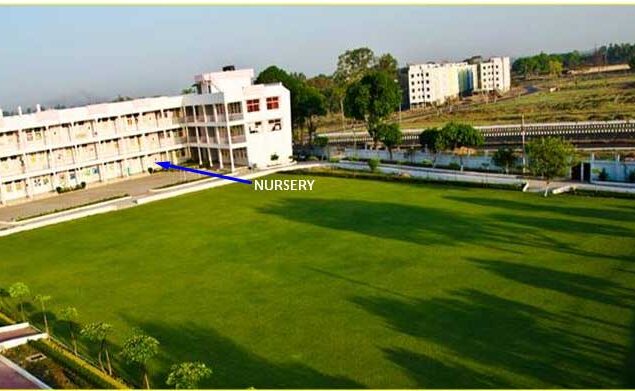
Laying the foundation
Experiences during the early years lay the foundation for all future learning. A rapid rate of development during the early years occurs in the physical, emotional, social and cognitive domains. The brain and body develop faster than at any other point in a child’s life. Social development also takes shape in these early years as children are naturally inclined to explore, to discover, to play and to make connections between self, others and their entire surroundings. Through these interactions, children form their perception of
themselves and others in the world (Rushton, Juola-Rushton 2010).
The PYP transdisciplinary framework is highly relevant for all learners during this period. It offers authentic opportunities to focus on the key developmental abilities that are acquired during this crucial time and that support young students to be self-regulating learners. The transdisciplinary themes offer authentic contexts for students to learn increasingly complex ideas about themselves and the world around them. Central ideas related to “Who we are” support young children to learn about identity, relationships, well-being and what it means to be part of a community. “How we express ourselves” relates to discovery, creativity and the expression of ideas and feelings.
Central features
The processes of learning and teaching are crafted to support students’ individual and emergent pathways of development. Teachers support learning by:
- planning uninterrupted time for play
- building strong relationships with students and their families
- creating and maintaining responsive spaces for play
- offering many opportunities for symbolic exploration and expression. Each of these elements are mutually supportive and are interwoven with the others in both theory and practice.
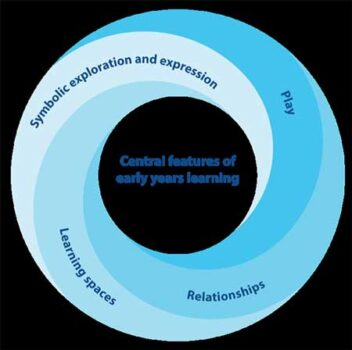

Our understanding
Our understanding of the learner is the foundation of our approach to learning and teaching. Children inquire, question, wonder and theorize about themselves, others and the world around them. They are keen observers and explorers. Through their experiences and interactions, they naturally develop intricate, multi-layered perceptions and understandings. Throughout the PYP, a student is an agent for their own and others’ learning through the concept of learner agency. Learner agency is connected to a student’s belief intheir ability to succeed (self-efficacy).
Students have voice, choice, and ownership for their own learning.
- When students have agency, the relationship between the teacher and students becomes a partnership.
- Students with a strong sense of self-efficacy bring a stronger sense of agency to the learning community.
- The learning community supports agency and fosters self-efficacy.
About IB PYP Teaching and Learning
- Language
- Mathematics
- Arts
- Personal, Social, Islamic Education
- Physical Education
The Subject Areas in Early Years
- Language
- Mathematics
- Arts
- Personal, Social, Islamic Education
- Physical Education
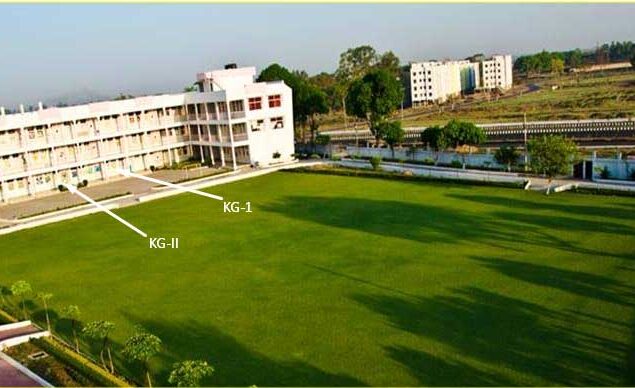
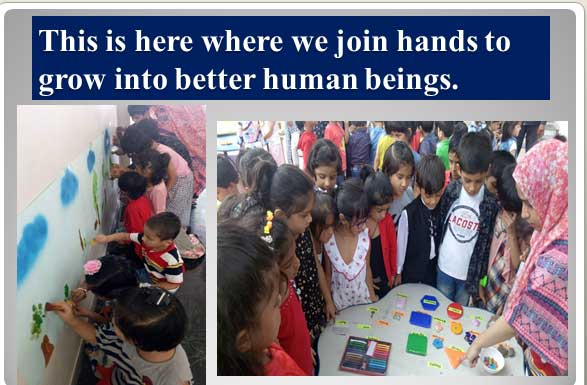
IB PYP Trans disciplinary Themes
- Who we are
- How we express ourselves
- How the world works
- Sharing the planet
- Where we are in place and time
- How we organize our selves
Important Learning Areas in Math
- Numbers
- Shapes and Space
- Patterns and Functions
- Data Handling
- Measurement
Registration time + Interaction with EYC
- Warm-up exercises
- Rhyme time
- Introduction to New Concepts
- Inquiry Time + Learning /Hands on Activities
- Break
- Writing Time
- Play Time
- Arts/ P.E/ Islamic Studies/Duaa’ & Tafseer
- Story time /Audio-Video
Assessments and Reporting in Early Years
- Formative Assessments
- Summative Assessments
- Reports after completion of every unit of inquiry
- Parent-teacher meeting –Twice a year
- Student-Led Conferences + Annual Learning Festival
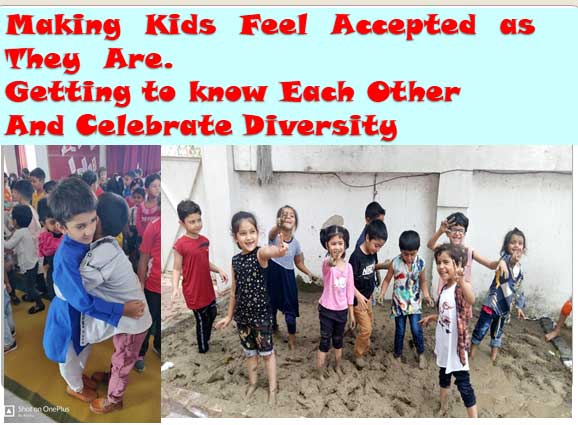
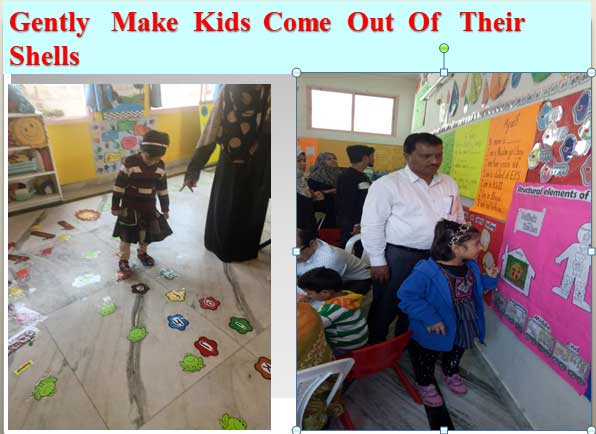
Events in Early Years Thrilling Thursdays and Fantabulous
| Curricular | Extra-Curricular |
| Sensory Play Day | Eid Celebration |
| Know My City/My Country | Child Safety Day/Fire Drill |
| PTMs | Picnic |
| Annual Learning Fest | Water Play Day |
| Student-Led Conference | Rain-Soaked/ Winter Party |
| Visits/Field Trips | Story Telling/Puppet Show |
| Expert Talk | EY Sports Day |
| Early Years Award Ceremony | End of the Session Parties |
Admission Criteria in Early Years
- Nursery: 3+ years
- K.G. I: 4+ years
- K.G.II: 5+ years
Competency Level :
Nursery: Face-to-face interview with EYC.
K.G.I and K.G. II: Written Competency Level Assessment + Interview.
Early Years Timings and Transportation
Timings:
- Monday to Thursday: 9:00 am to 1:00 pm.
- Friday : 9:00am to 12:30pm.
- Saturday and Sunday: Off
Transportation:
- Separate Mini Vans [for EY students only] with Lady Attendants.
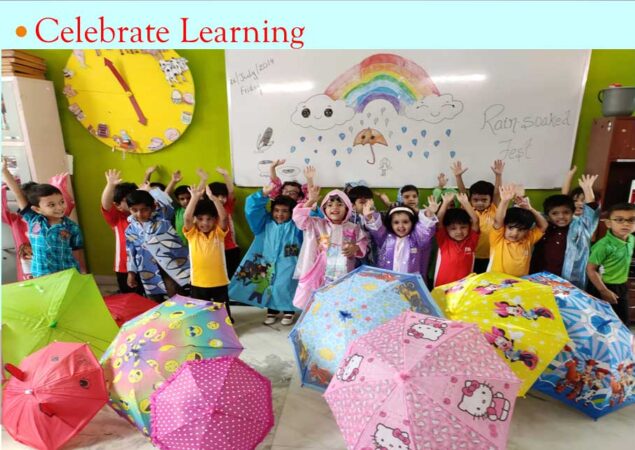
Stay Connected With Us
- School Diaries /Calendar
- Notices and Circulars
- SMS
- What’s App
- G-mail
- Blog
- Website
- PTM
- Appointments and Visits

